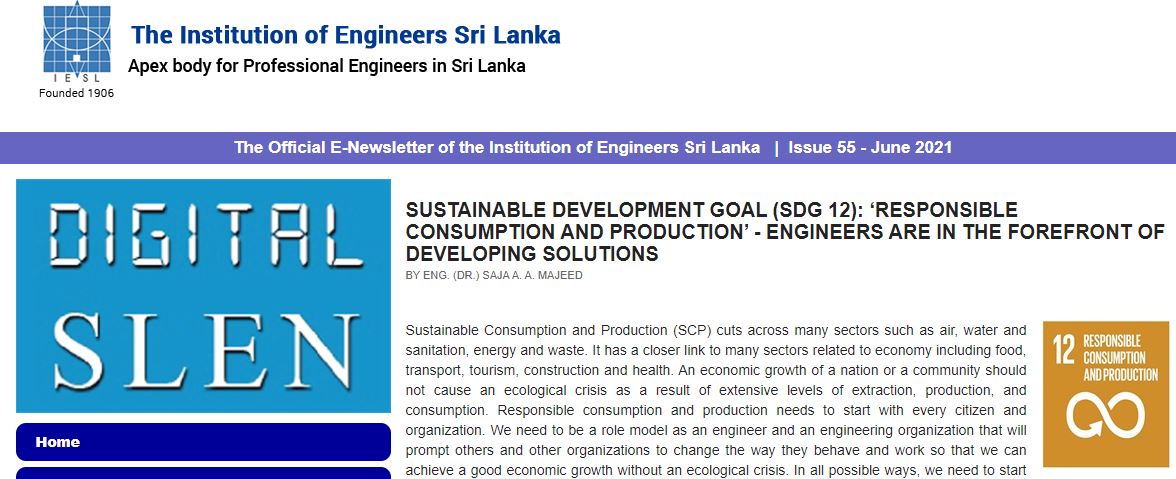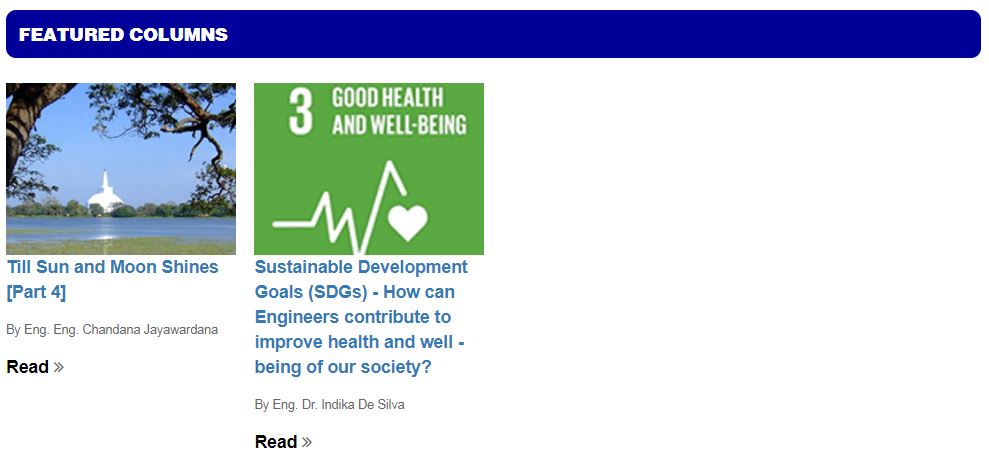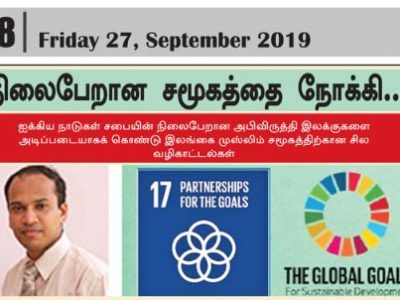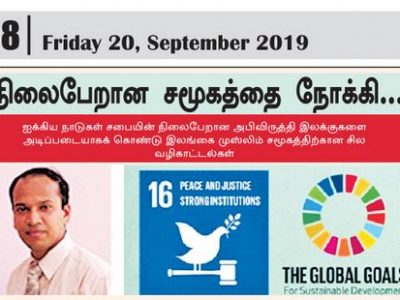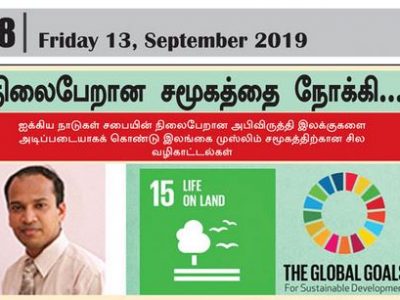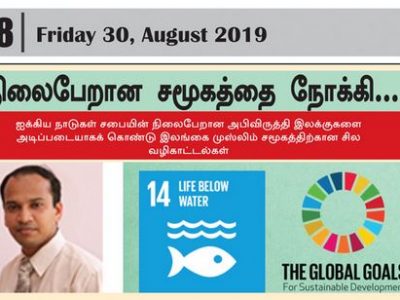Nine management components for highly effective Muslim organisations
We start with the very basic brainstorming question about our Muslim organisations in Sri Lanka, be it a national level or village based non-governmental organisation, an institute, a movement what else not, you name it. What I mean here by a Muslim organisation is any function carried out in an organised structure with the aim of achieving its mission among the Muslims as well as non-Muslims in Sri Lanka. Are they effective as it should be theoretically speaking? Are they reaching towards its goals? Are they efficient? Are they having enough reach out for the resources used and capacities in place? We can go on and on by asking basic simple practical questions one after the other in the logical sequence. What will be result of these questions? We may end up in searching answers for fundamental management questions of these organisations as it is one of the core elements in achieving its mission. From the mission statement till the achievement slogan, all matters? What, when and how are all important as we may have heard a saying goes as achievement of a goal is important, but how to achieve is more important than the end itself, being a Muslim.
Why is important to orient to the future? I give an extract from the writings on the Islamic foundation of planning from Dr. Iqbal Unus at International Institute for Islamic Thought (IIIT) below.
The Islamic way of life revolves around our preparation for the future life in the hereafter. The Qur’an tells us that those who ask for what is good in this world as well as in the hereafter will receive what is due to them in both worlds. It affirms that what is due to them is based on what they earn by their actions.
“Some say ‘Our Lord, give us all the good things here in this world.’ Such people shall have no share in the hereafter. Then there are others who say, ‘Our Lord, give us what is good in this world and also what is good in the Hereafter and save us from the torment of the Fire.’ Such people shall have their due share (in both the worlds) according to what they earn. And Allah is swift at settling accounts.” (Al Baqara [2]:202)
Thus the Qur’anic view is two-fold: We should plan our actions with specific goals in mind. Our reward is dependent on our implementing that plan. Making a plan and implementing it are thus two sides of the same coin. The Prophet (PBUH) urges us to be always oriented to the future. “If the last hour strikes and finds you carrying a nursling tree to the grove for planting, go ahead and plant it.” (Musnad Ahmad ibn Hanbal).
Having this in mind, we will focus on how to achieve the mission that we intend for through our organisations? What are the means to achieve this mission? I will structure them in the following 9 components. You just need to put “Do we (organisation) have” in front of each of the following; and take a breath after asking your self each question having thinking through the organisation (s) you may represent;
- Impact-oriented Strategic Planning
- Accountable Governance Structure
- Well-designed projects/programme management
- Participatory beneficiary/stakeholder design and action
- Effective human resource management/ People Management
- Transparent financial probity/ Finance Management
- Sustainable public policy
- Efficient office/work administration and networking
- High standard quality management and communication structure
What are your answers for each question? Definitely Yes or Confidently No or Doubtful Yes and No or difficult to answer discreetly. You will come to a decision that nothing is perfect in this world; we have some pluses and negatives. The same thing is for any organisation. You can argue that there are no perfect 100% efficient and effective organisations. So what makes an organisation more effective and efficient? Are we learning lessons from the past, from the mistakes and are we building upon what went successfully in the past and what were our strengths? That is what I am trying to articulate in this series. It has a very simple and fundamental aim – that is to take every one of us through a journey in our mind of what we are doing representing an organisation, which I think is important as anything else in our life. So lets begin to look at each question we asked earlier or rather each component in detail so that we probe more exhaustively in an attempt to take a positive step towards reforming ourselves in a progressive way. We will stop with digesting the framework of 9 the components I presented above for this month and meet with what it means to be “impact oriented strategic planning” for an organisation, in the next issue insha allah.
Saja is professionally an Engineer, having experience in humanitarian and community development work with international NGOs and currently working for a donor mission in Sri Lanka. His interest also includes organisational management and development.

